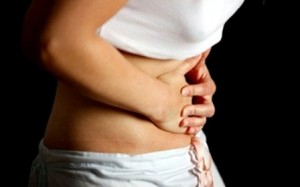
Episodes of travelers’ diarrhea are nearly always benign and self-limited, but the dehydration that can complicate an episode may be severe and pose a greater health hazard than the illness itself. Educating travelers on how to prevent or manage a diarrheal episode can help prevent compromising either their trip or their health.
*** DEFINITION: Traveler’s Dairrhea is frequently categorized into three forms: classic, moderate, and mild.
+ Classic: the passage of three or more unformed stools in a 24 hour period plus at least one of these other symptoms: nausea, vomiting, abdominal pain or cramps, fever, blood in stools
+ Moderate: the passage of one or two unformed stools in 24 hours plus at least one of the above symptoms or more than two unformed stools in 24 hours without other symptoms
+ Mild: the passage of one or two unformed stools in 24 hours without other symptoms
Getting traveler’s diarrhea therefore can be a mild inconvenience in most the cases or it can be a serious, dehydrating, and in a a small number of cases a life-threatening situation. Diarrheal disease in travelers may be caused by a variety of bacterial, viral, and parasitic organisms, which are most often transmitted by food and water. Southeast Asia and Viet Nam are considered high risk areas for this illness. The most effective measure is prevention.
*** PREVENTION – There are several means by which travelers can reduce their risk of developing a diarrheal illness, including the following;
Food and drink selection – Educated choices in selecting food and drinks can result in a much lower rate of diarrheal disease. Travelers should be aware of the following observations regarding transmission of diarrhea-causing organisms:
+ Freezing does not kill the organisms that cause diarrheal disease. Thus, ice in drinks is not safe unless made from adequately boiled or filtered water.
+ Alcohol does not sterilize water or ice; mixed drinks may still be contaminated.
+ Outbreaks of diarrheal disease have been associated with bottled water, including carbonated water with insufficient carbonation, on rare occasions. However, the presence of carbonation when a bottle is opened can reassure the traveler that the drink was processed in a proper fashion and is usually safe.
+ Fruit salads, lettuce, or chicken salads are examples of unwise food choices; the ingredients may have been improperly washed and/or may have been sitting for some time without proper refrigeration.
+ Condiments, and sauces sitting on the table can frequently become contaminated.
+ Steam table buffets, that offer the traveler a variety of foods from the local region are risky since the temperature of the food can promote the growth of bacteria.
These observations are also pertinent in expensive resorts or hotels; price does not guarantee appropriate hygiene. Hot tea and coffee are usually safe alternatives to boiled water. Bottled drinks should be requested without ice and should be drunk from the bottle with a straw rather than from a glass. Fruits that can be peeled are safe as long as they are peeled just prior to eating.
Water purification – It is usually safe to assume that the traveler will be able to find bottled water or soft drinks unless travel is to a rather remote area. Travelers who are going to be living in rustic circumstances overseas will need to make arrangements for a safe water supply depending upon their circumstances.
*** TREATMENT – The treatment of Traveler’s Diarrhea may include three different modalities:
+ Fluid replacement
+ Antibiotics
+ Antimotility agents ( examples Lomotil/Immodium)
Fluid replacement is essential; antibiotics and antimotility agents may be required depending upon the circumstances. Most cases are self-limited and resolve on their own within three to five days of treatment with fluid replacement only. Antimicrobial therapy shortens the disease duration to about one day and antimotility agents may limit symptoms to a period of hours.
*** CAUTION: If diarrhea last more than three days, contains blood or mucus or is accompanied high fever seek medical attention immediately. If heavy diarrhea occurs be sure to drink plenty of safe fluids. Powdered rehydration mixes like ORESOL, and HYDRITE effevescent tablets are available in from most pharmacies, and are frequently sufficient for replacement of ion and water losses. Finally, if you diarrhea is severe, or limiting your travel activities, a physician evaluation can often improve or quicken your recovery time. The physicians at Stamford Medical Clinic are experienced with very common Travel Health concerns like Traveler’s Diarrhea.